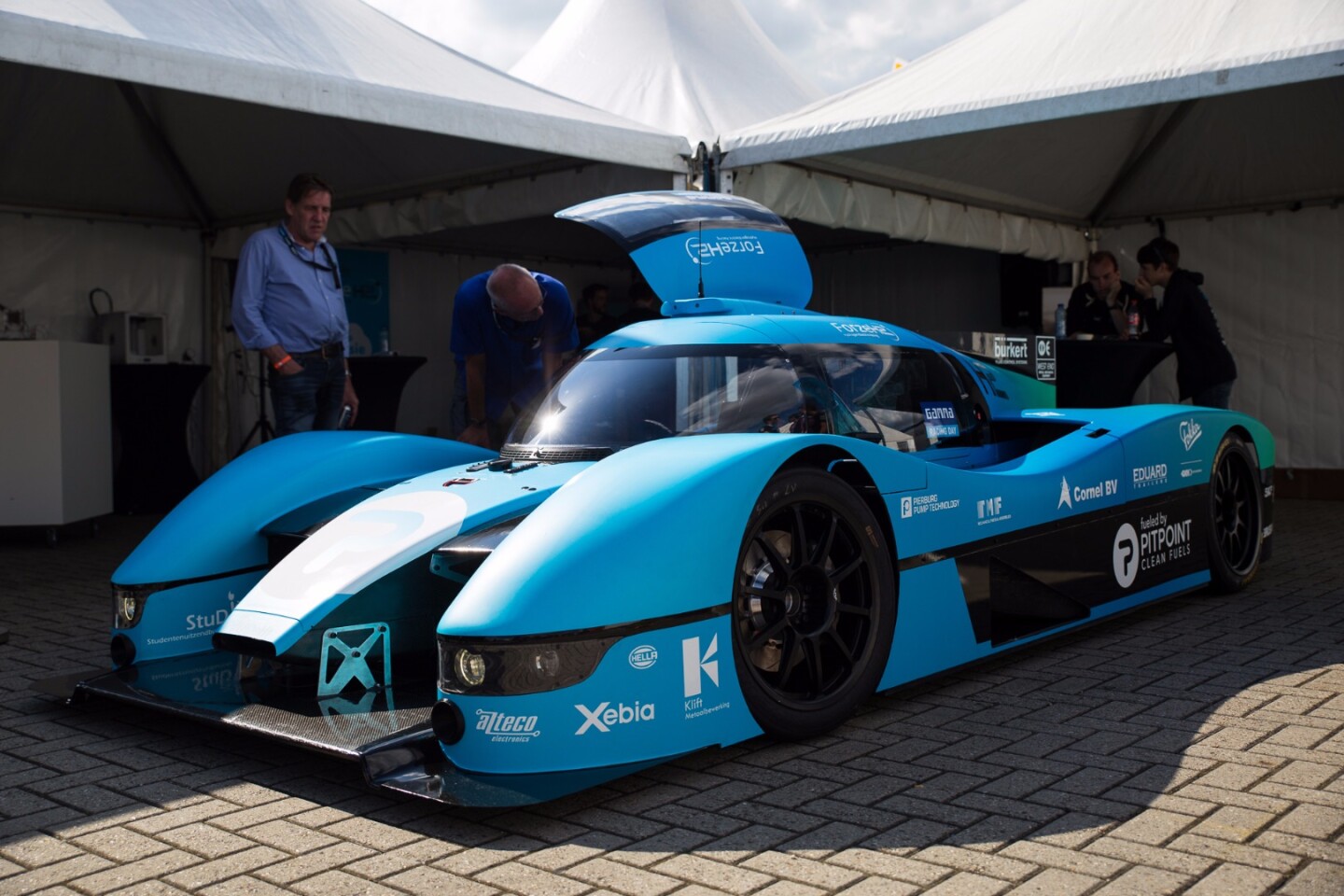A new supercar can hit 100 km/h (62 mph) from a standstill in under four seconds and reach top speed of 210 km/h (130 mph). When stacked up against supercar competition from the likes of McLaren and Hennessey, you'd be right to be unimpressed. But the Forze VII runs on hydrogen and produces no harmful tailpipe emissions, making it pretty super after all.
The Forze team is made up of 65 students from Delft University of Technology (TU Delft) and has been designing and refining hydrogen-powered race-cars since 2007. Its last iteration, the Forze VI, was unveiled in 2013 and is claimed to have set a Nürburgring Nordschleife lap record for a hydrogen fuel cell car just last year.
The design for the Forze VII was revealed back in March and the car was officially unveiled on Sunday during the Gamma Racing Day at the TT Circuit in Assen, Netherlands. Unlike its predecessors, it is built specifically for competing against petrol-powered cars, with the team aiming to show that the technology can be a feasible, reliable and exciting alternative.
The car has a LeMans Prototype (LMP) monocoque chassis and measures 4.6 x 1.9 m (15 x 6.2 lb). It weighs in at 1,100 kg (2,425 lb). There is still a throttle, brake and steering wheel, but driving it is said to be very different to driving a conventional car, with an energy buffer that requires charging at the right time. This means that drivers must become accustomed to the vehicle.

As with other fuel cell vehicles, a cell stack converts hydrogen and oxygen into electricity and clean wastewater. The hydrogen is stored in 350-bar and 700-bar tanks, with its flow controlled by a custom valve system. An air pump system used to provide the required oxygen for mixing with the hydrogen, meanwhile, is able to deliver up to 5,000 l (1,100 gal) of air per minute.
An energy storage system ensures there is enough power at any given time while the car is being driven, whether during acceleration or braking. A battery management system then oversees the amount of power required for the microcontrollers, which control two Yasa P400 electric motors. Ultimately, there's a fuel cell power of 100 kW (135 hp) and a boost power of 200 kW (270 hp).
The Forze VII is currently undergoing tests, with results that are so far said to be promising. The Forze team must show that the car can cover long distances safely and meet all the required safety conditions for racing. Once that testing is complete, the team will be free to hit the racetrack and begin chasing down records.
Source: Forze





